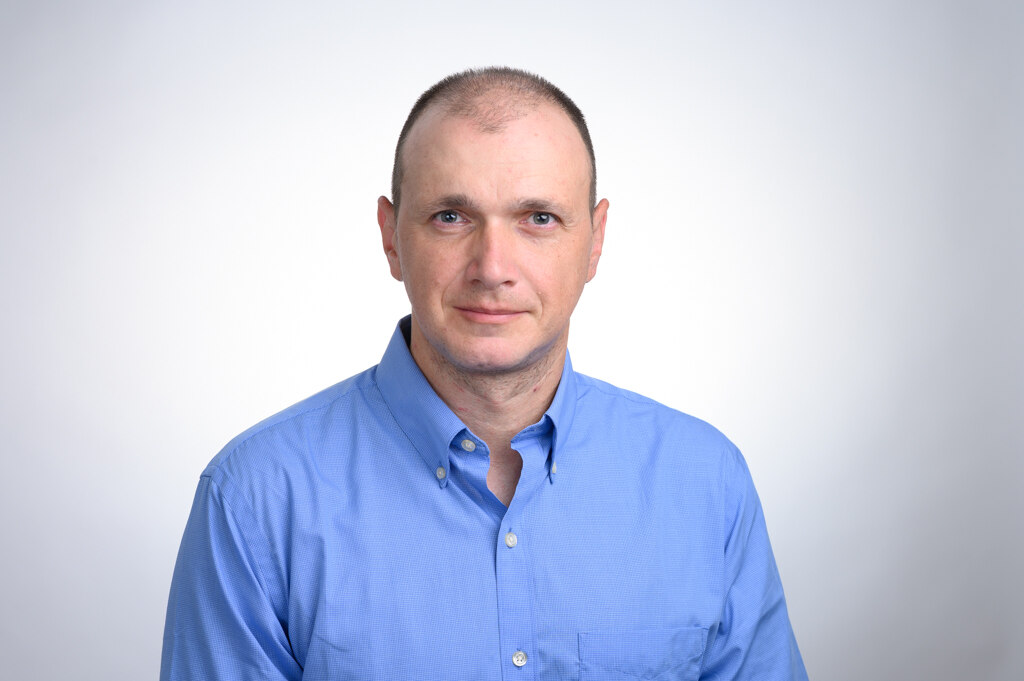Pleased to meet you: Dr. Boris Desiatov

Dr. Desiatov, who joined the Faculty of Engineering last year, is establishing an experimental electro-optics lab specializing in quantum optics and is trying to harness the qualities of light and use them to benefit humanity.
The world of communication is always engrossed in the matter of transferring encrypted information. It is relevant to nearly every aspect of our lives, from maintaining user privacy through communication between financial entities, protection against espionage, and military applications. The end goal, of course, is to reach a point of “unhackable” communication, and quantum mechanics may offer the safest solution. “Classic technology can’t always tell if someone intercepted the call and listened in on it,” explains Dr. Boris Desiatov. “Quantum optics, on the other hand, offers a security method known as quantum key distribution (QKD) which is impenetrable. When we transmit a key using quantum technology we can detect whether an unauthorized party tapped the encryption key – and solve the problem by replacing the key. It’s like sending out a locked box and making sure no one has replicated the key.”
Systems like the one described above are already in use, but their high cost keeps them away from the free market. Dr. Desiatov is currently establishing an experimental lab at the Faculty of Engineering, specializing in quantum optics, where he develops methods for making these systems both effective and attainable. “Quantum physics is becoming part of our everyday lives,” he says. “In the not-so-distant future, we would be able to use quantum devices for computation, quantum encryption, and quantum sensing in order to perform experiments and computations we could not access before. The technology exists, but the number of quantum information units – qubits that can be controlled independently– is still relatively small and insufficient for performing complex computation. At my lab, we’re trying to increase the number of qubits and make these systems much more elaborate. We’re working alongside theoreticians in order to figure out how we can make this theory into something we can actively work with.”
In his lab, Dr. Desiatov tries to use quantum properties of light and harness them to construct devices that can help build complex systems for sensing, computation, or transferring information using quantum theory. “In fact, what we’re doing research about is how light interacts with extremely small objects and how we can harness the properties of light and use them to benefit humanity. Since it’s an experimental lab we’re also involved in their design, their manufacturing at Bar Ilan's Institute for Nanotechnology and Advanced Materials, and measuring them, which we do in the lab,” he shares. “In addition, we’re developing sensors that are based on quantum technology, which we can then use to test optical signals at much greater precision than what we can achieve with today’s tools. This could be used in material science and biomedical sensing, for example detecting inflammatory particles in the body.”
Dr. Desiatov (42) is married and has two daughters. He earned his bachelor’s in physics and mathematics from the Hebrew University, proceeded to obtain a master’s and a PhD in applied physics, and then pursued a post-doctorate in experimental physics at MIT and Harvard University, at Prof. Marko Lončar‘s Laboratory for Nanoscale Optics. Last year he returned to Israel, directly to the electro-optics track at the Faculty of Engineering in Bar Ilan. “This is a natural procession to my previous work,” he says. In addition to working at the lab, Dr. Desiatov teaches Optical Communication (information transfer via light) for bachelor’s students and an elective course in Nano-Photonics. “Students in all degrees can attend the course; we learn how light behaves when it encounters very small objects, and how we can use these phenomena in applied, useful devices.”
Sounds interesting? Dr. Desiatov is currently seeking extraordinary MA, PhD, and Postdoc students to join his research group. Candidates can apply via email: boris.desiatov@biu.ac.il.
Last Updated Date : 25/10/2021



